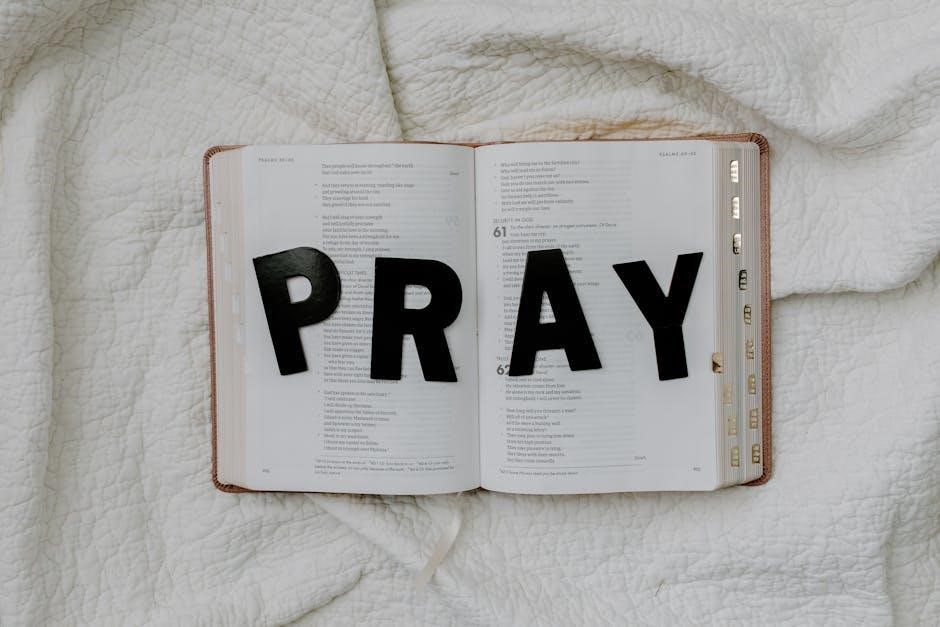A “guiding belief” crossword clue often refers to a core principle or philosophy that directs actions or decisions, serving as a central theme in puzzles․ Understanding such clues is essential for solvers, as they frequently connect to broader puzzle themes or hidden patterns, requiring a mix of vocabulary and critical thinking to decipher effectively․
1․1 Definition and Relevance of “Guiding Belief” in Crosswords
A “guiding belief” in crosswords typically refers to a central principle or philosophy that influences actions or decisions, often serving as a thematic anchor․ This clue type is highly relevant because it challenges solvers to connect abstract concepts with concrete answers, enhancing both critical thinking and vocabulary skills․ By focusing on core beliefs, these clues encourage solvers to think deeply about meanings and contexts, making them a popular choice for constructors aiming to create engaging and intellectually stimulating puzzles․ Mastering such clues can significantly improve one’s ability to navigate complex crosswords effectively․
1․2 Importance of Understanding the Clue for Solving Puzzles

Understanding the “guiding belief” clue is crucial for solving crosswords effectively, as it often represents a key theme or concept that ties the puzzle together․ Grasping this clue can unlock interconnected answers, streamlining the solving process․ It enhances problem-solving skills by requiring solvers to think creatively and make connections between seemingly unrelated words․ Moreover, it fosters a deeper appreciation for how crosswords are constructed, making the experience more rewarding for enthusiasts․ By mastering this type of clue, solvers can approach puzzles with greater confidence and efficiency, ultimately improving their overall crossword-solving abilities over time․

Strategies for Solving “Guiding Belief” Crossword Clues
Analyzing wordplay, identifying common patterns, and utilizing crossword conventions are key strategies for solving “guiding belief” clues, helping solvers decode hidden meanings and connections effectively․
2․1 Analyzing Wordplay and Hidden Meanings
Analyzing wordplay and hidden meanings is crucial for solving “guiding belief” crossword clues․ Crossword constructors often use anagrams, double meanings, or homonyms to conceal answers․ For example, a clue like “philosophy that guides” might hint at “ethics” or “morals․” Additionally, solvers should look for synonyms or related terms that align with the “guiding belief” theme․ Paying attention to word lengths and intersecting letters can also reveal patterns․ Sometimes, clues incorporate metaphors or puns, requiring solvers to think creatively․ By breaking down each clue and exploring its multiple interpretations, solvers can uncover the hidden meaning behind the “guiding belief” and fill in the correct answer effectively․
2․2 Using Crossword Conventions and Common Patterns
Mastering crossword conventions and common patterns is essential for solving “guiding belief” clues․ Constructors often use standard clue types, such as definitions, anagrams, or synonyms, to frame the answer․ For example, a clue like “philosophy that guides” might hint at “ethics” or “morals․” Recognizing these patterns helps solvers narrow down possibilities․ Additionally, crosswords frequently employ wordplay like reversals or hidden words within phrases․ Paying attention to clue structure, such as question marks indicating puns, can also guide solvers․ Familiarity with these conventions allows solvers to approach “guiding belief” clues more systematically, increasing their chances of uncovering the correct answer efficiently․

Common Themes and Examples in Crossword Puzzles
Common themes in crosswords include morality, philosophy, and principles․ A “guiding belief” clue often relates to terms like ethics, morals, or creed, appearing frequently in famous puzzles․
3․1 Examples of “Guiding Belief” Clues in Famous Crosswords
In famous crosswords, “guiding belief” clues often appear as moral code or ethics․ For instance, the New York Times crossword featured a clue where “guiding belief” led to the answer creed․ Another example is the clue “philosophy of life,” which solved to ethos․ These clues frequently incorporate wordplay, such as anagrams or synonyms, to challenge solvers․ In one puzzle, “guiding belief” was hinted at through a cryptic reference to faith, requiring solvers to think metaphorically․ Such examples demonstrate how “guiding belief” clues are designed to test both vocabulary and critical thinking, making them a staple in expert-level crosswords․
3․2 Case Studies of Successful Solves
One notable case involves a solver who cracked the “guiding belief” clue in a challenging puzzle by recognizing it as a reference to moral philosophy․ The clue “philosophy of life” led to the answer ethos, while another solver deciphered “moral compass” as ethics․ In a famous crossword, the clue “core belief” was solved as creed by analyzing wordplay and synonyms․ These successes highlight how understanding the clue’s context and employing critical thinking are key to solving such puzzles effectively․ Such cases inspire solvers to refine their strategies and expand their vocabulary, demonstrating the rewarding nature of crossword solving․

Tips for Beginners to Crack “Guiding Belief” Clues
Beginners should start by analyzing simple clues, using dictionaries for word meanings, and practicing regularly with puzzles․ Building a strong vocabulary and staying patient is key to mastering crossword clues effectively․
4․1 Building Vocabulary and Knowledge Base
Expanding your vocabulary is crucial for tackling crossword clues, especially those involving abstract concepts like “guiding belief․” Start by familiarizing yourself with common crossword answers, focusing on synonyms, antonyms, and wordplay․ Utilize dictionaries, thesauruses, and online tools like Quizlet to memorize terms․ Additionally, broaden your knowledge base by reading widely on topics such as literature, history, science, and pop culture, as crosswords often draw from these areas․ The more you know, the easier it becomes to connect clues to their meanings․ Regular practice and exposure to puzzles will also enhance your ability to recognize patterns and solve clues effectively over time․
4․2 Practicing with Similar Clues and Puzzles
Regular practice with clues similar to “guiding belief” helps improve your problem-solving skills and familiarity with crossword conventions․ Start by solving puzzles with themes or difficulty levels comparable to those containing such clues․ Pay attention to wordplay, anagrams, and synonyms, as these are common in crosswords․ Use online tools or apps to access practice puzzles and track your progress; Additionally, engaging with daily crosswords and reviewing solved examples can sharpen your ability to decode abstract concepts․ Consistent practice not only builds confidence but also enhances your capacity to think critically and connect clues to their meanings effectively․
Advanced Techniques for Expert Solvers
Expert solvers employ advanced strategies like anagram recognition, synonym substitution, and cryptic clue decoding to swiftly crack complex puzzles, ensuring efficient and accurate solutions every time․
5․1 Utilizing Anagrams and Synonyms Effectively
Expert solvers often leverage anagrams and synonyms to decode complex clues․ For instance, rearranging letters in “guiding belief” can reveal hidden words like “believing” or “fielding․” Recognizing these patterns quickly enhances solving efficiency․ Additionally, understanding synonyms for key terms can unlock answers, as crossword clues frequently rely on wordplay․ By mastering these techniques, solvers can tackle even the most challenging puzzles with confidence and precision, ensuring they uncover the correct answers swiftly and effectively․
5․2 Decoding Cryptic Clues and Metaphors
Cryptic clues and metaphors in crosswords require a deep understanding of wordplay and indirect references․ Expert solvers often look for double meanings, puns, or phrases that hint at the answer through clever language․ For example, a clue like “Guiding belief in reverse” might point to “faith” when read backward․ Metaphors add another layer of complexity, where the answer is inferred through symbolic representations․ To master these, solvers must practice recognizing patterns and think creatively․ Utilizing tools like dictionaries or thesauruses can also help uncover hidden meanings․ Experience and a keen eye for subtlety are key to deciphering these challenging clues effectively․
The Role of Crossword Communities and Resources
Crossword communities and resources provide invaluable support, offering forums for discussion, shared strategies, and access to tools like dictionaries and crossword solvers, enhancing solving skills and enjoyment․
6․1 Online Forums and Solver Communities
Online forums and solver communities are invaluable for crossword enthusiasts, offering spaces to discuss clues, share strategies, and learn from experienced solvers․ These platforms often feature threads dedicated to specific puzzles, including those with “guiding belief” themes․ Members frequently exchange tips, decode tricky clues, and provide insights into common patterns․ Additionally, many communities share resources like dictionaries, anagram solvers, and historical puzzle archives, which can be instrumental in cracking difficult clues․ Engaging with these groups not only enhances problem-solving skills but also fosters a sense of camaraderie among solvers, making the puzzle-solving journey more enjoyable and collaborative․
6․2 Recommended Tools and Websites for Crossword Enthusiasts
Several tools and websites are indispensable for crossword enthusiasts, particularly when tackling clues like “guiding belief․” Crossword Tracker and Crossword Solver are popular platforms that provide instant solutions, anagram generators, and clue databases․ These tools help solvers identify patterns and decode cryptic hints․ Additionally, websites like Quizlet offer flashcards for vocabulary building, while forums like Reddit’s r/crosswordpuzzles provide community support․ Online dictionaries and thesauruses, such as WordHippo, are also essential for finding synonyms and understanding wordplay․ These resources empower solvers to tackle challenging clues confidently, making the puzzle-solving process both efficient and enjoyable for enthusiasts of all skill levels․
Mastery of “guiding belief” clues requires a blend of vocabulary, pattern recognition, and strategic thinking, fostering continuous learning and enjoyment in crossword puzzle-solving experiences for enthusiasts․
7․1 Summarizing Key Takeaways
The “guiding belief” crossword clue revolves around identifying core principles or philosophies, often requiring solvers to connect abstract concepts with precise vocabulary․ Through analyzing wordplay, leveraging common patterns, and engaging with crossword communities, solvers can enhance their skills․ Building a strong knowledge base and practicing regularly are crucial for mastery․ Advanced techniques, such as decoding metaphors and utilizing anagrams, further empower experts․ Ultimately, solving “guiding belief” clues is a rewarding challenge that combines logic, creativity, and continuous learning, making it a fulfilling experience for both beginners and seasoned enthusiasts․
- Focus on understanding the clue’s abstract nature and its connection to broader themes․
- Utilize strategies like wordplay analysis and pattern recognition․
- Leverage community resources and tools for support․
- Embrace continuous learning to refine skills․
7․2 Encouraging Continuous Learning and Improvement
Continuous learning is vital for mastering “guiding belief” crossword clues, as they often involve evolving vocabulary and clever wordplay․ Engaging with crossword communities and utilizing online tools can provide valuable insights and strategies․ Regular practice with diverse puzzles helps refine skills, while exploring advanced techniques like anagrams and metaphors enhances problem-solving abilities․ Embrace curiosity and persistence, as every solved clue brings new knowledge and confidence; By staying committed to learning, solvers can continually improve and enjoy the rewarding challenge of crossword puzzles․
Stay curious, practice consistently, and leverage resources to grow as a solver․